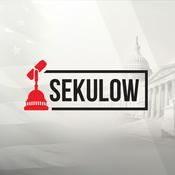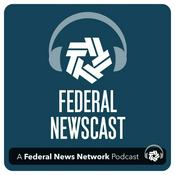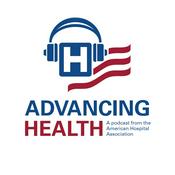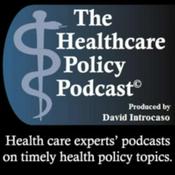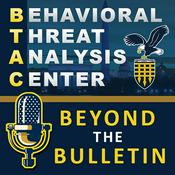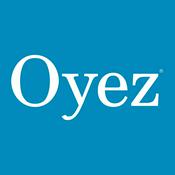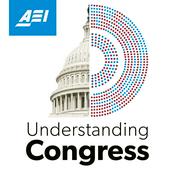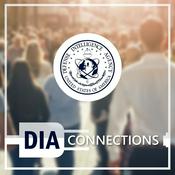Available Episodes
5 of 138
- Department Reforms Student Aid and Cracks Down on FraudYou’re listening to the Education Brief, where we break down what’s happening at the U.S. Department of Education and what it means for your life.The big headline this week: the Department of Education has wrapped up key negotiated rulemaking sessions to carry out two major laws reshaping federal student aid, including the new Workforce Pell Grant and the One Big Beautiful Bill Act’s loan provisions, while also announcing that it has prevented 1 billion dollars in federal student aid fraud so far this year, according to the Department’s own newsroom.Here’s what that means. Education officials say the Workforce Pell Grant rules are designed to let students use Pell dollars for high-quality, career-focused programs that lead directly to in-demand jobs. For Americans, that could open doors to shorter, skills-based training without taking on a traditional four-year degree. For businesses, especially in health care, advanced manufacturing, and tech, it promises a stronger pipeline of workers with exactly the credentials employers say they need.At the same time, the rulemaking on the One Big Beautiful Bill Act is aimed at overhauling student loan repayment and protections. The Department reports that its negotiators reached consensus on a full package of changes, including new standards meant to safeguard taxpayers and curb abuse in federal loan programs. Pair that with the announcement that enforcement efforts have stopped 1 billion dollars in fraud since January, and you see a clear signal: the Department is tightening oversight of colleges, servicers, and bad actors in the aid system.State and local governments are watching closely, because new Workforce Pell rules will affect how community colleges and training providers design programs, approve partnerships, and report outcomes. Internationally, this push toward workforce-aligned education could influence how U.S. credentials are viewed abroad, especially in technical fields where global competition is fierce.Critics, including some higher education groups and policy advocates, are urging the Department to balance aggressive fraud prevention with clear, predictable rules so that legitimate institutions are not buried in red tape. Supporters argue that taxpayers and borrowers have been footing the bill for predatory behavior for too long, and that cracking down is overdue.For listeners, the timeline matters. The Department has signaled that final rules for these programs are on the way, with implementation likely tied to upcoming award years. If you’re a student or parent, keep an eye on announcements from your college’s financial aid office about new Workforce Pell options or changes to your loan repayment plan. If you run a business, this is a good moment to connect with local colleges or workforce boards about programs that could soon be Pell-eligible.You can find more details straight from the U.S. Department of Education’s website and from Federal Student Aid’s official updates. And if the Department opens these rules for public comment or hosts listening sessions, that’s your chance to weigh in on how loan repayment and workforce training should work in practice.Thanks for tuning in, and don’t forget to subscribe so you never miss an update. This has been a quiet please production, for more check out quiet please dot ai.For more http://www.quietplease.aiGet the best deals https://amzn.to/3ODvOtaThis content was created in partnership and with the help of Artificial Intelligence AI--------3:18
- Bureaucracy Shake-Up: Department of Education Shifts Programs Amid Shrinking MandateYou’re listening to Ed Brief, where we break down what’s happening at the U.S. Department of Education and why it matters to you.The big headline this week: the Department of Education is sending home dozens of employees who were on the chopping block back to work to tackle a growing civil rights backlog, even as the administration continues its push to shrink and ultimately close the department. According to the Associated Press and local outlets covering federal workforce news, staff in the Office for Civil Rights who were targeted for layoffs are being reinstated to help investigate discrimination complaints from students and families. A department spokesperson, Julie Hartman, said the government will “utilize all employees currently being compensated by American taxpayers” while it continues to appeal lawsuits over the job cuts.At the very same time, the department is moving aggressively to hand off many of its core programs to other federal agencies. In a recent press release, the department announced six new interagency agreements designed, in their words, “to break up the federal education bureaucracy” and move programs closer to other parts of government. Reporting from Education Week and EdNC explains that the Department of Labor will now manage most K–12 grant programs, including more than 20 billion dollars a year in funding, such as Title I money for schools serving students from low income families. Other programs are shifting to the Departments of Health and Human Services, Interior, and State, including grants for Native American education, campus child care, and international and foreign language studies.Secretary of Education Linda McMahon says these partnerships are about cutting red tape and aligning education with workforce needs. She recently said that by working with Labor, Interior, Health and Human Services, and State, the department will “refocus education on students, families, and schools” and make sure spending supports a world class education system. But a coalition of 20 state attorneys general and the District of Columbia has gone to court, arguing that federal law requires the Education Department to run its own programs and that the administration is using these agreements as a backdoor way to dismantle the agency.So what does all this mean for listeners? For American families, especially those in schools that rely heavily on federal aid, the big questions are stability and accountability: who is actually in charge of making sure dollars arrive on time and civil rights are enforced when something goes wrong in a classroom. For businesses and nonprofits that partner with schools, shifting oversight to the Labor Department could tie education more tightly to workforce pipelines, potentially speeding up new apprenticeship and career programs but also changing grant rules and expectations. State and local education agencies may see streamlined communication with Washington in the long run, but in the short term they are navigating new points of contact, new systems, and legal uncertainty as the lawsuits play out.Internationally, moving foreign language and international education programs to the State Department could deepen ties between U.S. campuses and global partners, but it also signals that these programs are being reframed as tools of foreign policy as much as education.Here’s what to watch next. Courts will decide how far the administration can go in redistributing the department’s work without new action from Congress. The interagency agreements are already signed, but state lawsuits could slow or reshape implementation timelines. If you care about how this plays out, you can follow updates from your state attorney general, your state education agency, and the U.S. Department of Education’s newsroom, and you can contact your members of Congress to share how these changes might affect your local schools, colleges, or workforce programs.Thanks for tuning in, and don’t forget to subscribe so you never miss an update. This has been a quiet please production, for more check out quiet please dot ai.For more http://www.quietplease.aiGet the best deals https://amzn.to/3ODvOtaThis content was created in partnership and with the help of Artificial Intelligence AI--------4:38
- Education Overhaul: Department of Labor Takes Charge of K-12, Interior Manages Native ProgramsGood morning, this is your education update. The Trump administration has just made a massive restructuring of how America's schools are managed. This week, the U.S. Department of Education announced it's moving significant portions of its operations to four other federal agencies, marking what many are calling the most dramatic shift in education governance in decades.Here's what's happening. The Department of Labor will now take on administration of most K-12 education programs, managing over twenty billion dollars annually. This includes Title I funding, which supports disadvantaged students in schools across the country. The Labor Department will also oversee most postsecondary education grant programs. Education Secretary Linda McMahon explained this move is designed to break up federal bureaucracy and align education more closely with workforce development. She stated the goal is to ensure every student has a clear pathway from education to opportunity.But there's more. The Department of Interior is now taking over Native American education programs, positioning itself as the key point of contact for tribes and Native students. The Department of Health and Human Services will handle child care access and foreign medical school accreditation. The Department of State will manage international education and foreign language studies.So what does this mean for schools and students? Districts will now interact with the Labor Department for major funding streams instead of the Education Department. Grant management processes are shifting. Education Department staff are being transferred to these agencies. For Native American communities, there's a new direct relationship with Interior. For families, the transition could mean changes in how programs are accessed and administered.The administration says this streamlines operations and returns education authority to states. Critics worry about potential service disruptions during the transition and question whether workforce-focused agencies can adequately manage education programs.What's next? Implementation will happen gradually, with the Education Department retaining policy oversight. Listeners should monitor their state education agency websites for updates on how these changes affect local schools. If you have questions, reach out to your state department of education or visit ed.gov for more information.Thank you for tuning in. Be sure to subscribe for the latest updates on education policy. This has been a quiet please production, for more check out quiet please dot ai.For more http://www.quietplease.aiGet the best deals https://amzn.to/3ODvOtaThis content was created in partnership and with the help of Artificial Intelligence AI--------2:26
- The Education Department Dismantled: What it Means for Schools, Students, and Families# Department of Education Restructuring: What You Need to KnowHello and welcome. This week, the Trump administration made a bombshell announcement that could fundamentally reshape how America's schools operate. The Department of Education is being dismantled, with its core functions scattered across four different federal agencies. Here's what that means for you.The Education Department announced six interagency agreements moving K-12 and higher education programs to the Department of Labor, while shifting educational services for Native Americans to the Interior Department, college student childcare and foreign medical school accreditation to Health and Human Services, and international education to the State Department. This represents the most aggressive push yet toward eliminating the department that conservatives have targeted for decades.These changes aren't small tweaks. Management of both the Office of Elementary and Secondary Education and the Office of Postsecondary Education are heading to Labor, which traditionally oversees workforce development and worker protections. Education Department staff are expected to move with their programs. The administration is calling this fulfilling President Trump's promise to return education to the states, though civil rights organizations have denounced what they call unlawful transfers of critical offices and responsibilities.Here's why this matters. States are now wondering how these changes will affect their schools and students. Meanwhile, there's immediate confusion. The Education Department already attempted transferring career-technical education to Labor earlier this year, and reports show that transition hasn't gone smoothly, with critics citing serious issues around accessing federal education funding.Congress still hasn't approved a budget for the fiscal year that started October first, adding more uncertainty. Schools don't know what their funding looks like yet.For families, this could mean significant changes to how your children's schools receive federal support and guidance. For educators, there's concern about whether programs and services they rely on will function properly under new leadership. Business organizations are watching whether workforce development strengthens or falters.The administration is using legal workarounds to avoid seeking congressional approval, drawing from Project 2025, the Heritage Foundation's blueprint for restructuring government.What happens next? Watch for implementation challenges similar to what we're already seeing with career-technical education transfers. States will likely seek regulatory clarification on their new responsibilities. Civil rights protections could face challenges as oversight shifts between agencies.For more information, check your state education department's website and monitor Education Department announcements as these transitions unfold. Make sure to subscribe and stay informed about how these changes affect your community.This has been a Quiet Please production. For more, check out quietplease.ai.For more http://www.quietplease.aiGet the best deals https://amzn.to/3ODvOtaThis content was created in partnership and with the help of Artificial Intelligence AI--------3:03
- Education Overhaul: Feds Shift K-12 Funding to Labor Dept, Concerns Over BureaucracyGood morning, this is your education update. The Trump administration just announced a major restructuring of the Department of Education that could fundamentally change how federal education money flows to schools across the country.On Tuesday, the Department of Education announced six new partnerships with four federal agencies to move significant portions of their operations elsewhere. Here's what's happening: the Department of Labor will now oversee more than twenty billion dollars annually in K-12 education funding, including major programs like Title I grants that support disadvantaged students, English language acquisition, and literacy programs. The Department of Labor will also manage most postsecondary education grant programs to better align education with workforce development.The Interior Department is taking on Native American education programs, while the Departments of State and Health and Human Services are handling international education and child care access respectively. Secretary of Education Linda McMahon framed this as cutting through federal red tape and returning control to states and local communities. She emphasized the administration's goal to refocus education on students and families rather than federal bureaucracy.The impact on schools is where this gets complicated. While the administration promises no disruption to funding, state education leaders are sounding alarm bells. Wisconsin's superintendent called the restructuring inefficient and said states weren't consulted. Washington state's education chief warned the plan creates five times more bureaucracy, not less, forcing educators to coordinate with multiple federal agencies instead of one. California and Maryland superintendents raised similar concerns about confusion and inefficiency.Higher education leaders seem more pragmatic, saying they care most about whether students actually receive grant dollars regardless of which agency manages them. The real uncertainty is in implementation. The Department of Education says it will provide proper oversight, but specifics on how these transitions will work remain unclear.The administration is using these interagency agreements as a legal workaround to avoid needing congressional approval. This represents a significant step toward the broader conservative goal of dismantling the Education Department entirely, something that would technically require Congress to vote on.For students and families, the immediate concern is whether funding flows smoothly during these transitions. Schools should watch their district's communications for updates on how grant applications and compliance processes might change. Parents can engage by reaching out to state education officials and congressional representatives about their concerns.As this unfolds, keep an eye on implementation deadlines and watch whether promised program continuity actually materializes when these transitions begin. The Education Department will be providing updates through regular communication channels.Thank you for tuning in to this education update. Be sure to subscribe for more policy insights. This has been a Quiet Please production. For more, check out quietplease.ai.For more http://www.quietplease.aiGet the best deals https://amzn.to/3ODvOtaThis content was created in partnership and with the help of Artificial Intelligence AI--------3:17
More Government podcasts
Trending Government podcasts
About Department of Education News
Discover insightful discussions on "Department of Education," a podcast dedicated to exploring the dynamic world of education. Join experts, educators, and thought leaders as they delve into current trends, innovative teaching strategies, and policy changes shaping the future of learning. Whether you're a teacher, student, or education enthusiast, tune in to gain valuable knowledge and stay informed about the evolving educational landscape.For more info go to Http://www.quietplease.aiCheck out these deals https://amzn.to/48MZPjs
Podcast websiteListen to Department of Education News, The Lawfare Podcast and many other podcasts from around the world with the radio.net app
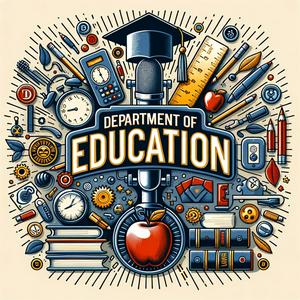
Get the free radio.net app
- Stations and podcasts to bookmark
- Stream via Wi-Fi or Bluetooth
- Supports Carplay & Android Auto
- Many other app features
Get the free radio.net app
- Stations and podcasts to bookmark
- Stream via Wi-Fi or Bluetooth
- Supports Carplay & Android Auto
- Many other app features


Department of Education News
Scan code,
download the app,
start listening.
download the app,
start listening.





